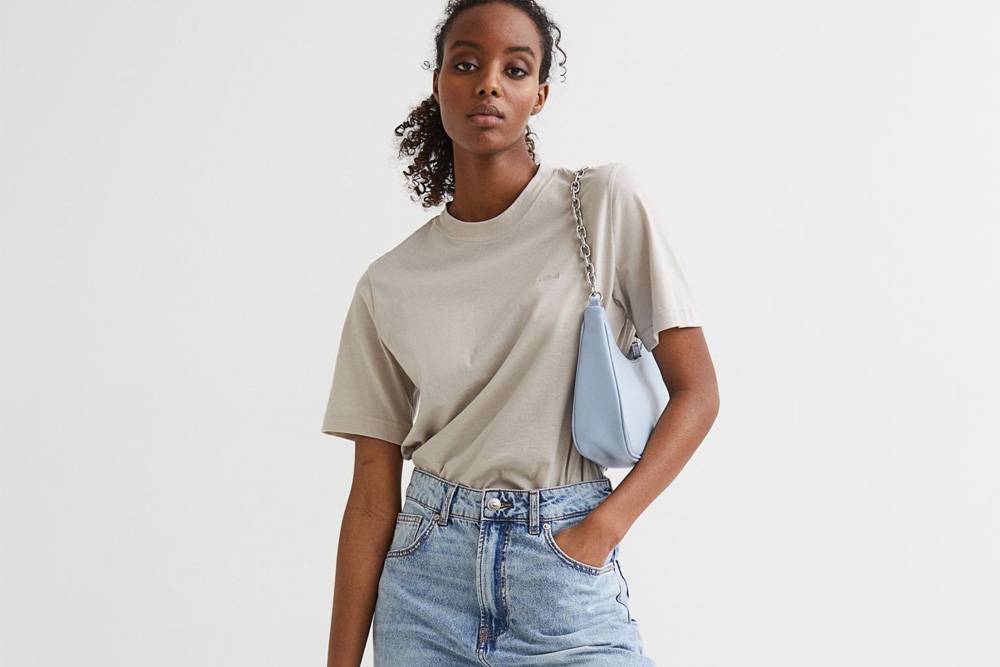
Lee x H&M is the latest collaboration between the two clothing-retail companies to bring more sustainable denim to eco-conscious fashion consumers.
H&M or Hennes & Mauritz AB is a Swedish multinational clothing-retail company that creates fast-fashion clothing for men, women, teenagers, and children.
Lee is an American brand of denim jeans that sells a variety of designer jeans, shorts, shirts, and more for women and men. Global lifestyle apparel company Kontoor Brands owns Lee and Wrangler.
"Lee is proud to be collaborating with H&M to continue our efforts to make better denim. Our brand was founded more than 130 years ago with innovation in mind, and today we are happy to be joining H&M to give denim a more sustainable future."
- Chris Waldeck, Lee, EVP Global Brand President
Panaprium is independent and reader supported. If you buy something through our link, we may earn a commission. If you can, please support us on a monthly basis. It takes less than a minute to set up, and you will be making a big impact every single month. Thank you!
Lee x H&M sustainable collection
The new Lee x H&M collection features more sustainable wide jeans, denim dresses, carpenter jeans, dungarees, jeans in relaxed fits, tees, hoodies, bucket hats, beanies, and more.
It also includes clothing-retail giant H&M's first 100% recycled cotton jeans, made from 80% post-industrial waste and 20% post-consumer waste.
We can only celebrate that the apparel businesses focus more on sustainability to provide positive change for a more sustainable and circular fashion future.
H&M is also becoming more transparent, as it shares Life Cycle Assessment (LCA) data online that includes water, carbon, and energy impact of denim garments.
H&M sustainability commitment
Lee and H&M's new collection features beautifully-crafted and sustainable clothing pieces made from recycled materials, as it continues to promote sustainability in the affordable segment of the fashion industry.
H&M has long been aware of the disastrous impact of fast fashion on people and the environment. It's continuously making efforts to become more ethical and sustainable.
H&M has been offering a sustainable collection of inexpensive garments made from organic and recycled fabrics since 2019, using many sustainably-sourced materials.
57% of the materials used by H&M today are recycled, organic, or sustainably sourced. Its central goal is to reach 100% recycled, repurposed, or more sustainably sourced materials by 2030, if not sooner.
It's very encouraging to see large retailers like H&M support sustainability initiatives and work towards a more sustainable fashion future, even though only a small portion of their product range is ethical and eco-friendly.
How sustainable is H&M really?
Fast-fashion giants like H&M are promoting their sustainable collection everywhere in print, on the web, and social media. But the large majority are their business remains unsustainable.
But only a tiny number of the materials used by H&M are environmentally friendly and sustainable. The group considers a garment sustainable when it's made from at least 50% sustainable fibers.
Unfortunately, the share of eco-collections in fast fashion is insignificant compared to what conscious consumers rightfully expect from giant clothing retailers like H&M.
Businesses are greenwashing by only showing what consumers want to see. They aim to increase sales without considering the environment and the welfare of people first.
Companies often claim environmental benefits with no supportive data. A common practice is to classify entire garments into the natural, bio, organic, or recycled categories when it concerns only a portion of the used fibers.
Fashion brands want to be seen as eco-friendly when they are not. It's an easier option to solicit consumers' trust and make more profits without truly improving manufacturing processes in the supply chain.
Was this article helpful to you? Please tell us what you liked or didn't like in the comments below.
About the Author: Alex Assoune
What We're Up Against
Multinational corporations overproducing cheap products in the poorest countries.
Huge factories with sweatshop-like conditions underpaying workers.
Media conglomerates promoting unethical, unsustainable products.
Bad actors encouraging overconsumption through oblivious behavior.
- - - -
Thankfully, we've got our supporters, including you.
Panaprium is funded by readers like you who want to join us in our mission to make the world entirely sustainable.
If you can, please support us on a monthly basis. It takes less than a minute to set up, and you will be making a big impact every single month. Thank you.































0 comments